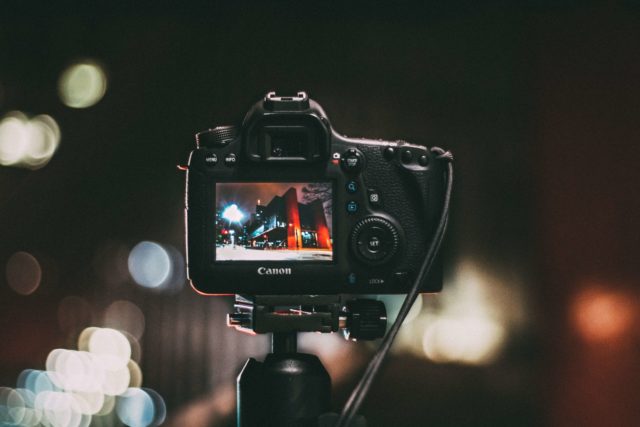Talk to any professional photographer and he/she will tell you that practicing photography is more than just clicking pretty pictures. Sure, you own a DSLR or an iPhone 10. But having either or both won’t guarantee that you will have a successful career as a photographer. That’s just another myth associated with photographers. You need a certain set of knowledge and skills to be a successful professional photographer.
Have you always wondered ‘Should I become a photographer?’ Read this article to find out if your interests, personality, lifestyle, skills, and knowledge are suited for a career in photography.
1. Knowledge and Skills
Technical expertise
To be a successful professional photographer, you need to be updated with the latest technologies – both in hardware as well as software.
Hardware knowledge would include knowing how to operate a camera, lenses, lights, tripods, and other equipment that photographers commonly use. You also need to get the following basics right – composition, exposure, depth of field, focal planes, shutter speeds and how to use the camera to make the most of it.
Similarly, you must also be familiar with visual editing software. There are several technologies like Photoshop and Lightroom available today. Different software programs create different types of images. You need to master a few to know which software suits your needs and can be used to edit different types of images.
An eye for detail
Photography is subjective. What might be a great photo for me, might not impress you at all. But successful professional photographers don’t use this excuse to pass off bad photos as good ones!
If you are an aspiring photographer, you need to have an eye for detail. A photographer must size up an event to know what will make a photo worthwhile. For instance, if you’re shooting a model for a fashion client, you need to –
- Ask yourself – whether a close-up shot of the model will be better or a picture of her interacting with her environment?
- Determine the shutter speed, angle, and depth of the shot.
- Ask yourself – is your shot telling a story? Is it bringing out an emotion that you expect from your audience?
- Ask yourself – does the picture need front, back or side illumination?
Post-production is equally important wherein you must identify and fix any issues, however small, in each photograph.
So having an eye for detail, and being meticulous when scrutinizing every single element of your shot – both during and post-production is very important in producing the perfect photograph. Good photographers practice these things until they become second nature.
Patience and flexibility
You need patience to find the perfect lighting. You need patience for dealing with difficult clients or subjects. You might need to shoot several shots, keep trying, before you shoot “the one” – the perfect shot.
You also need to be flexible as you won’t be in control of everything. It could be the lighting, the client, the equipment, or the crew – several factors that might not end up working in your favor. You need to be flexible enough to adapt to difficult situations and patient enough to deal with them.
Business skills
While not all photographers choose to work on their own, most do. Selling prints or working as a freelancer requires you to be your own business manager. From social marketing to creating a business pitch to building client relationships, you will be in charge of everything. If you don’t know how to sell your skills effectively to potential clients, you will find it hard to make a living in this field.
People skills
As a photographer, more often than not (depending on your niche), you’ll be working with people. You’ll need networks, connections, partnerships – for which you need to be able to communicate and negotiate effectively.
You also have to know how to interact with your subjects – especially if you’re shooting people – to make them feel comfortable, to get them to cooperate, and to click that perfect shot that you want.
Legal knowledge
You don’t need to be a law student to be a successful professional photographer. But you need to have some legal knowledge so you don’t land in trouble. You should know –
- Is it legal to take photos on private property?
- Can you take photos of someone and run them without their permission?
- Who owns the copyright to your photos?
- By allowing a publication to carry your work, what rights are you giving up?
- When does a photograph violate someone’s right to privacy?
Knowing the law will protect you from a legal hassle and it will also educate you about your rights to your own photos.
2. Character Traits
Do you tend to notice things in detail?
From the different colours on the petals of a flower to how the sky changes as the sun rises, if you tend to notice things in greater detail than those around you, you might have it in you to be a professional photographer.
It is common knowledge that photographers see the world in a different way. They notice lights, shapes, textures, and colours to understand how different elements can change the way an image looks.
Do you forget about everything when you start clicking?
Photography is an immersive process. It allows you to see the beauty around you and truly live in the present. For others, photography might mean uploading a photo on Instagram.
But for you, photography leads to all your daily worries melting away. If you tend to lose yourself in shooting without realizing how much time has passed, photography might just be the career option for you.
Do you use pictures to express yourself?
Most photographers use their pictures to express their thoughts and beliefs. If your photographs represent who you are as a person, you should consider changing your passion to your profession.
By choosing what you photograph and how you represent it, a person who sees your body of work should get a fair idea of your opinions and feelings.
3. Personality and Lifestyle
Photographers need to interact with different people on a daily basis. You need to work hard to bring out the best in people. For that, you need to know how to make a person comfortable by being patient, understanding, and empathetic.
Creativity and imagination are also essential personality traits. Learn how to use unusual perspectives, lighting, and textures to create interesting photographs. Also, if you’re outgoing, you’ll find it easier to market yourself and your work.
You also need to be patient. For instance, a wildlife photographer might have to lie for two hours in the mud to wait for a turtle to slowly make its way out of the water.
You also need to be courageous. If you’re interested in shooting raging forest fires, civil unrest or wars, you will need to have the courage to face the circumstances.
Photographers don’t have 9-to-5 jobs. Even photographers who work at a corporate don’t work at regular office hours. There will be times when you will have to give up on your social life if you need to be at a shoot. But if you work as a freelance photographer, you’ll get to choose the clients you want to work with, the projects you want to work on, and the number of hours you want to work in a week!
If you are an aspiring photographer, make sure you tick the boxes for the above-mentioned things so you can safely answer the question ‘should I become a photographer?’































